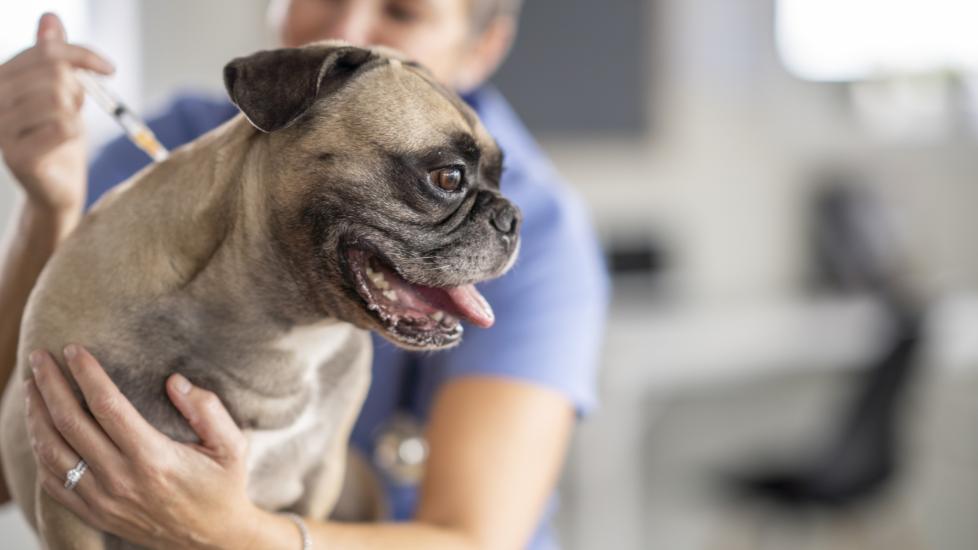In the world of canine health care, one vaccine that stands out as a crucial measure in preventing infectious diseases is the Bordetella vaccine. This vaccination plays a pivotal role in safeguarding dogs against respiratory illnesses caused by Bordetella bronchiseptica, a bacterium known to trigger kennel cough—a highly contagious and potentially severe condition affecting our beloved pets. The importance of this immunization cannot be overstated, especially considering how frequently dogs come into close contact with other pups at boarding facilities, dog parks, or during grooming sessions. Let us delve deeper into understanding the Bordetella vaccine and its significance for your furry friend’s well-being.
Understanding Kennel Cough:
Kennel cough, also referred to as tracheobronchitis, is an umbrella term used to describe various infections causing inflammation of the lower airways in dogs. It typically manifests as a persistent, honking cough that sounds similar to a goose’s call. While most cases are mild and resolve on their own, severe instances may require medical intervention due to complications like pneumonia. Bordetella bronchiseptica is just one of several pathogens associated with kennel cough; others include parainfluenza virus, adenovirus type 2, and Mycoplasma spp. These microorganisms often work together synergistically, making infection more likely and symptoms more pronounced.
The Role of the Bordetella Vaccine:
Vaccination against Bordetella offers robust protection against one significant component of kennel cough, reducing the risk of infection and subsequent spread among susceptible populations. There are two main types of Bordetella vaccines available: intranasal and injectable forms. Intranasal versions deliver the vaccine directly into the nostrils, mimicking natural exposure to the bacteria while stimulating both mucosal immunity (which lines the respiratory tract) and systemic immunity throughout the body. Injectable options provide broader coverage but may not induce as strong a local immune response within the nasopharynx where these infections primarily take hold. Your veterinarian will recommend the best choice based on your dog’s lifestyle, age, and overall health status.
Importance of Timely Vaccination:
Just like human children receive vaccinations before starting school or daycare, it is essential to have your pooch vaccinated prior to any high-risk situations involving potential exposure to kennel cough. Puppies between six and 16 weeks old should receive a series of shots followed by boosters depending on which vaccine was administered. Adult dogs who haven’t been previously vaccinated or whose immunity has waned should also get the shot if they anticipate being in communal settings where transmission could occur. Remember that no vaccine provides complete protection; however, they significantly reduce the likelihood and severity of illness when contracted naturally.
Considerations Before Vaccinating:
Before deciding whether your dog needs the Bordetella vaccine, consider discussing these points with your vet:
-
Lifestyle Assessment: If Fido spends ample time around other animals or frequents places where socializing occurs en masse, then vaccination makes sense from a preventive standpoint.
-
Potential Side Effects: As with all medications and treatments, there’s always a chance of adverse reactions ranging from mild discomfort at injection sites to rare occurrences of fever, lethargy, or digestive upset. Your vet will weigh these risks against the benefits provided by vaccination.
-
Cost-Benefit Analysis: Although costs vary based on location and clinic fees, the expense of treatment for kennel cough can quickly surpass what you would pay for a single dose of the vaccine. Additionally, many establishments now require proof of vaccination as part of their entry policy, so skipping this step might limit your pet’s activities.
-
Legal Requirements: Certain states or regions might enforce mandatory Bordetella vaccination for boarding, grooming services, or participation in certain events. Check local regulations to ensure compliance.
-
Your Dog’s Health Status: Pets with compromised immune systems due to underlying conditions such as cancer or chronic disease may need additional guidance regarding vaccination protocols since live attenuated strains found in some formulations could cause issues for them specifically.
Conclusion:
By ensuring that your four-legged companion receives up-to-date Bordetella vaccinations alongside routine wellness check-ups tailored to his individual needs, you contribute greatly towards fostering good health and longevity in man’s best friend. Through proactive measures like these combined with attentive caregiving practices at home – including proper nutrition, regular exercise routines suited to each breed/age group along with consistent training methods designed around positive reinforcement techniques – we create optimal living environments where our cherished companions thrive happily alongside us humans every single day!
